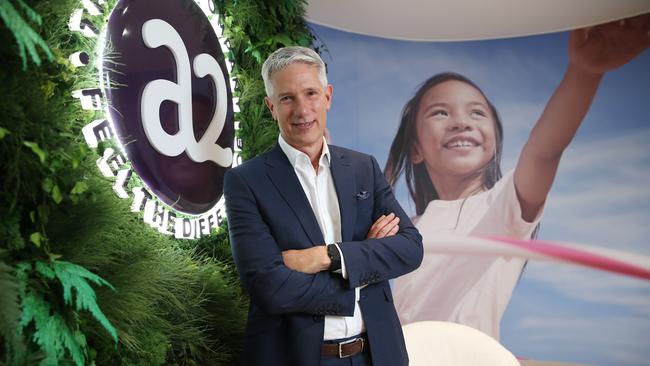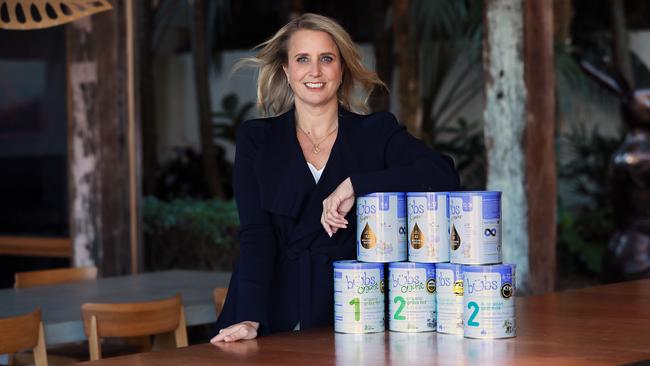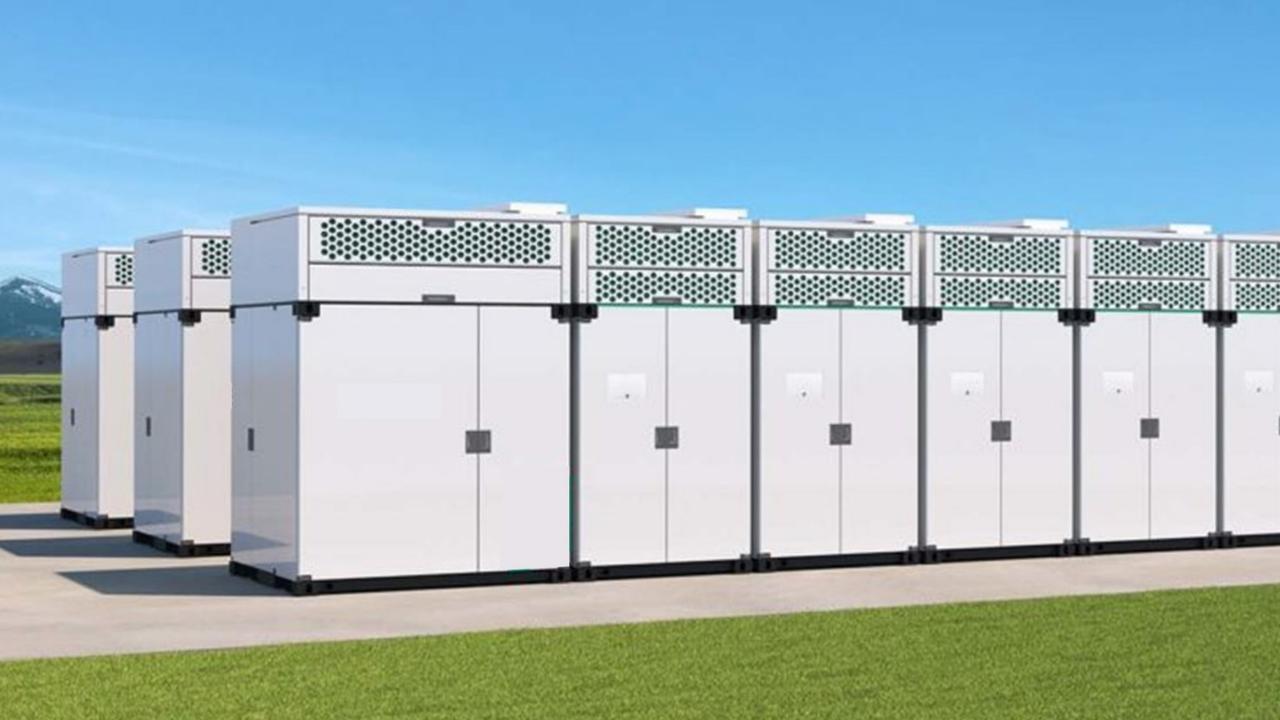Bubs stoush and A2 Milk’s share price plunge raises questions over investment value of infant formula
Falls in the share price of infant formula-related stocks have prompted investors to question whether the ‘white gold rush’ is over. Analysts and fund managers have their say.

Infant formula makers were once the rock stars of the ASX but the pandemic-fuelled collapse of the Chinese daigou market has sparked steep falls in the share prices of A2 Milk, Bubs and others.
Compounding problems is China’s declining birthrate and extra labelling requirements under the country’s new GB standards, prompting investors to ask “is the white gold rush over?”
The deterioration in Bubs’ financial performance was one of the triggers that led to its boardroom drama following the ousting of founder and former chief executive Kristy Carr and ex-executive chairman Dennis Lin. A board spill is now weeks away.
Bubs chair Katrina Rathie has called agribusiness investment banker and adviser David Williams and corporate restructuring specialist McGrathNicol to complete a strategic review of its business after its shares dived more than 70 per cent in the past year.
It has also been a torrid time for A2 Milk investors. The company’s shares have plunged almost 28 per cent to $4.89 in the past six months – far from its record high of $20 reached in July 2020.

The infant formula market has changed dramatically during the pandemic. Before Covid-19 hit, China was seen as a road to riches – and companies needed to spend very little on distribution and marketing, thanks to daigous or reseller market.
Chinese students, tourists and the organised group known as corporate daigous bought product in Australia and sent it back to China – an efficient distribution method that could deliver companies margins of up to 60 per cent and little costs. But international border closures abruptly halted that.
Now the pendulum has swung to China’s general trade – or bricks and mortar retail such as mother-and-baby stores – which accounts for about 80 per cent of the country’s infant formula market and requires registration under its new national standards. It also requires deep pockets, as companies need to spend up to hundreds of millions of dollars a year on marketing and distribution there.
Ophir Asset Management sold its stake in A2 about nine months ago. Director and senior portfolio manager Andrew Mitchell, who had previously championed the company, said there was enough uncertainty around its stock to keep “incremental buyers on the sidelines”.
“There is no doubt that A2 is a much better run business than it was a few years ago,” Mr Mitchell said.
“We are concerned about the short-term outlook for the business given a decline in birthrates and Chinese mums beckoning increasingly price sensitive with infant formula.
“In the interim we are anticipating increased competition due to excess inventory following the transition to new Chinese labelling requirements.”
But he has a more upbeat medium-term view on A2, because China has renewed the registration of the company’s contract manufacturer, Synlait, in New Zealand earlier this month. Bubs is yet to gain such regulatory approval.
“While we don’t own A2, we are positive on the stock because in a medium term they are in a strong position to continue to take market share and capitalise on any rebound in the Chinese birthrate,” Mr Mitchell said.
Morgans analyst Belinda Moore has been cautious with A2, given its “full multiples and the earnings uncertainty associated with challenging market conditions which are likely to persist”.
“We remain concerned that this uncertainty may cause disruption to sales/pricing and create inventory risks (writedowns) between the timing of new and old product (consumers perceive this stock as not being fresh),” Ms Moore said.
But like Mr Mitchell, she has a positive outlook over the medium term, particularly as the new Chinese regulations, or SAMR registration, trim the number of infant milk players.
“We think the challenging operating conditions in the 2H23 will also impact the 1H24,” Ms Moore said.
“However, taking a medium-term view, we think A2 is well positioned and should take further market share, and be an even stronger brand in China given the number of infant formula participants in this market will be severely rationalised through this process (as intended).
“They won’t all receive SAMR registration and therefore won’t be able to sell their CL infant formula into China’s largest channel – mother-and-baby stores.”
Ms Moore’s earnings forecasts for A2 are line with the company’s recently revised guidance, implying FY23 revenue growth of about 10 per cent and earnings before interest, tax, depreciation and amortisation of $NZ216m ($198.7m).
“Net profit growth should exceed this rate as it will benefit from materially higher interest income given rising interest rates on A2’s large cash balance,” she said.
“With FY24 likely to be a transition year, earnings uncertainty remains high in this particular year.”
Citi analyst Sam Teeger said he was “incrementally more positive” on A2 and earlier this month upgraded the company’s share rating from sell to neutral, citing “encouraging China momentum”.
“Our longer-term concerns around birthrate and margin expectations prevent us from being buy-rated,” Mr Teeger wrote in a note to investors.
But with Bubs he said there was “too much uncertainty around the strategic direction”.
The company’s new board axed a plan to manufacture infant formula in China for the Chinese market – a piggyback on a local company’s SAMR registration. Instead it will start the process from scratch, starting an application to get its factory in Melbourne registered – a tough task given the frosty relations between Canberra and Beijing which is only just starting to thaw.
In early June, Mr Teeger cut his EBITDA forecasts for Bubs a further $3m to a net loss of $40m, following a weaker-than-expected third quarter earnings update from its Chinese operations.
Revenue from China in the three months to March 31 dived 57 per cent to $2.6m compared with the previous corresponding period. Bubs now forecasts full-year China revenue of $13.5m to $13.8m versus last year’s $53.6m.
Mr Teeger said Bubs’ high premium to peers was no longer justified.
“Following weaker-than-expected sales, particularly in China, we are increasingly concerned on the implications for channel profitability and subsequently consumer offtake,” Mr Teeger said.
“As a result, we no longer see the high premium to peers as justified. We remain neutral/high risk rated.”
Bubs’ shares closed flat on Friday, finishing the week down 7.7 per cent at 18c.



